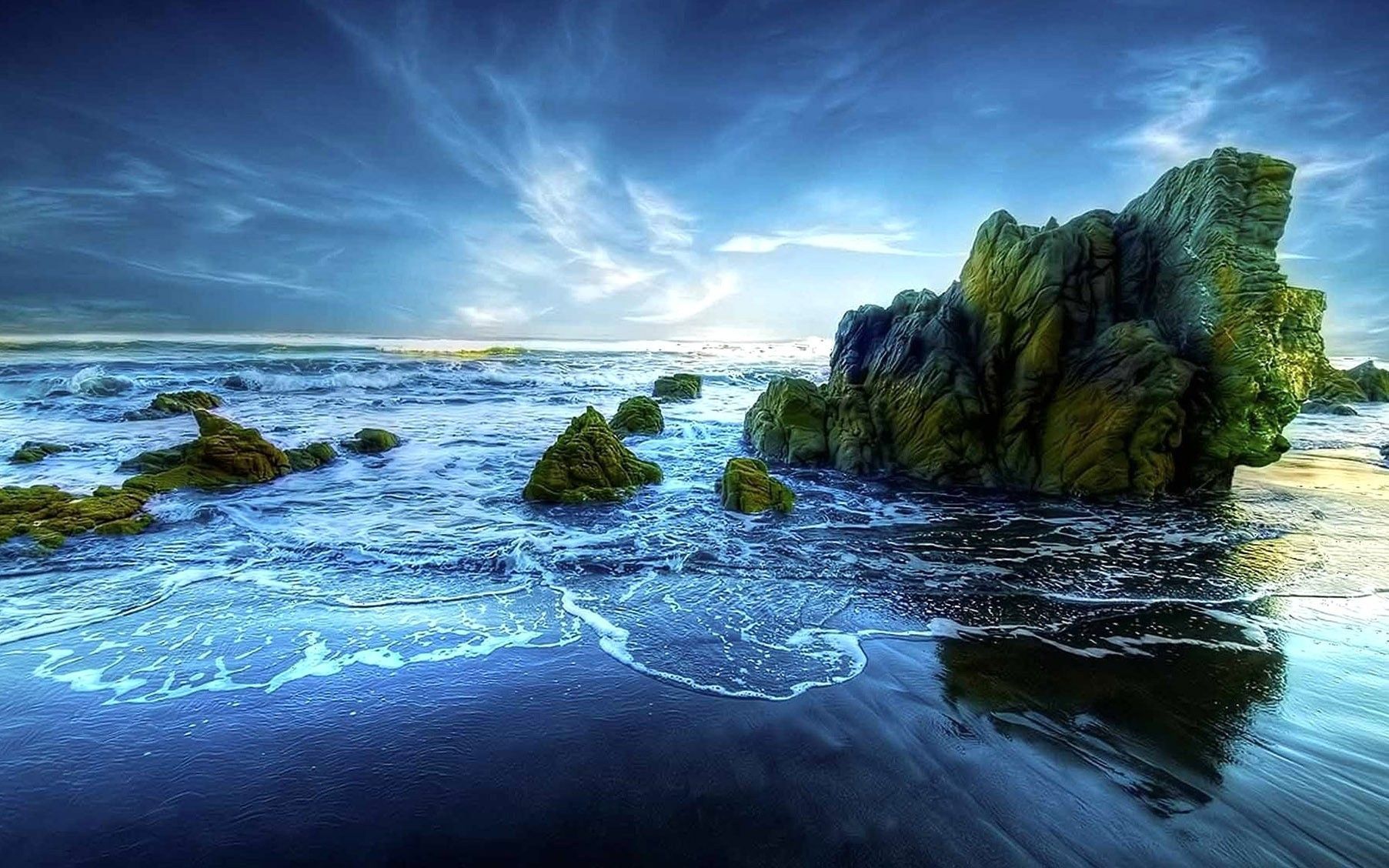The Earth's oceans: Our blue heart and life support system
The oceans also play a vital role in regulating the Earth's climate and providing food and resources for billions of people.

The Earth's oceans are vast and mysterious, covering over 70% of the planet's surface. They are home to an incredible diversity of life, from microscopic plankton to giant whales. The oceans also play a vital role in regulating the Earth's climate and providing food and resources for billions of people.
The oceans as a life support system
The oceans provide us with a number of essential services, including:

- Climate regulation: The oceans absorb heat from the sun and release it slowly over time, helping to moderate the Earth's climate.
- Oxygen production: Phytoplankton in the oceans produce about half of the oxygen that we breathe.
- Food and resources: The oceans provide us with food, such as fish, shellfish, and seaweed. They also provide us with resources such as oil, gas, and minerals.
- Transportation: The oceans are a vital transportation route for goods and people around the world.
Threats to the oceans
Despite their importance, the oceans are facing a number of threats, including:

- Pollution: Pollution from land-based sources, such as sewage and agricultural runoff, is a major problem for the oceans.
- Overfishing: Overfishing is depleting fish populations and disrupting marine ecosystems.
- Climate change: Climate change is causing the oceans to warm and acidify, which is harming marine life and ecosystems.
What can we do to protect the oceans?
There are a number of things that we can do to protect the oceans, including:

- Reduce pollution: We can reduce pollution from land-based sources by disposing of waste properly and using less harmful chemicals.
- Support sustainable fishing practices: We can support sustainable fishing practices by buying seafood from reputable sources and avoiding seafood that is caught using destructive methods.
- Reduce our carbon footprint: We can reduce our carbon footprint by using less energy, driving less, and eating less meat.
The oceans are essential to our planet and our lives. We must all do our part to protect them.
Here are some specific actions that you can take to help protect the oceans:
.png?updatedAt=1696870276044)
- Reduce your plastic consumption: Plastic pollution is a major problem for the oceans. You can reduce your plastic consumption by bringing your own reusable bags and water bottle when you go shopping, and by avoiding single-use plastics such as straws and utensils.
- Support organizations that are working to protect the oceans: There are many organizations that are working to protect the oceans. You can support their work by donating money, volunteering your time, or spreading the word about their mission.
- Get involved in ocean conservation campaigns: There are a number of ocean conservation campaigns that you can get involved in. You can sign petitions, attend protests, and contact your elected officials to urge them to take action to protect the oceans.
Every little bit helps. By taking these actions, we can all play a role in protecting our blue heart and life support system.

 Fine End
Fine End 











